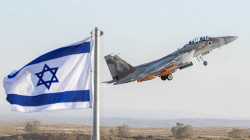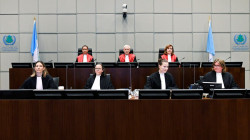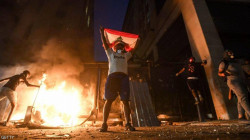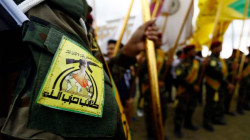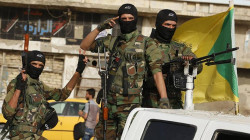Kata'ib Hezbollah considers opening a new front in Jordan: Washington Institute
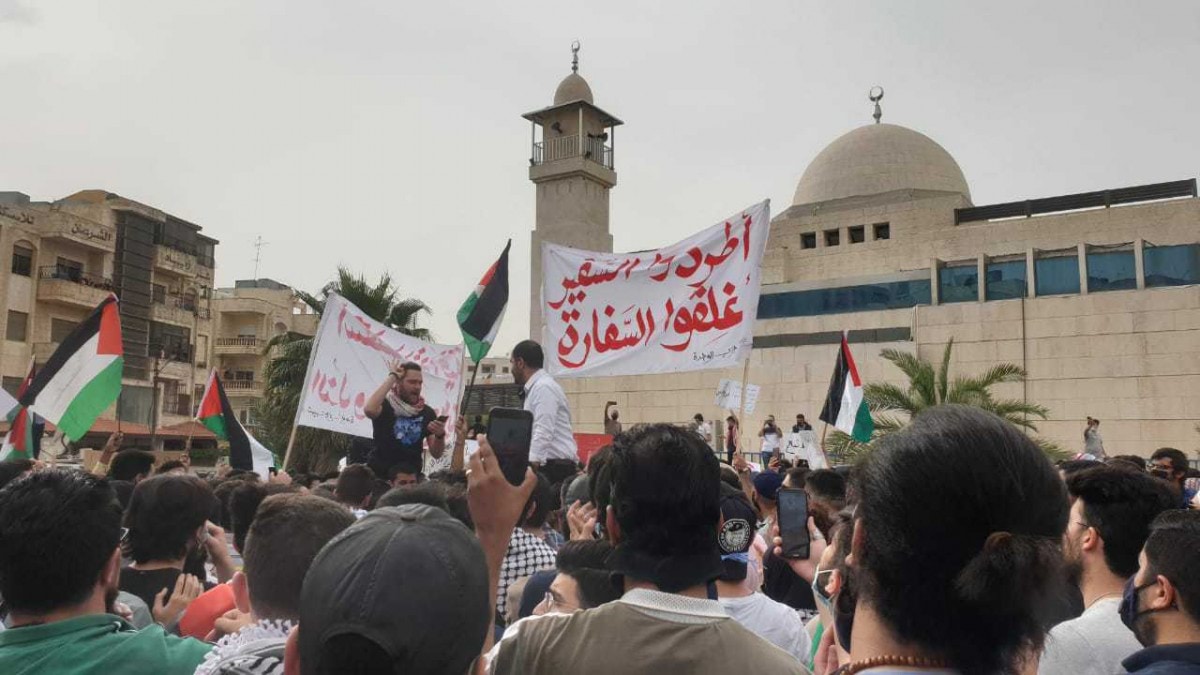
Shafaq News/ With Nujaba seemingly leading on Israel strikes, Kataib Hezbollah is signaling its intended leadership of "destabilizing activities" in Jordan, a brief by analysis by the Washington Institute suggested.
On April 1, Abu Ali al-Askari, security chief for the Iran-backed Kataib Hezbollah (KH), claimed that his group “has prepared to arm the Islamic Resistance in Jordan.” Specifically, he declared that KH is ready to provide “12,000 fighters with light and medium weapons, anti-armor launchers, tactical missiles, millions of rounds of ammunition, and tons of explosives, so that we can be one hand to defend our Palestinian brothers and avenge the honor of Muslims that was violated by the sons of apes and pigs [referring to Israelis].” According to Askari, a recommendation from Hamas and Palestinian Islamic Jihad is all that Jordanian militants need to receive these weapons so that “we can first cut the road that reaches the Zionist Entity".
This idea of isolating Israel with attacks on ports, airports, and borders fits with the past statement issued by Kataib Sayyid al-Shudada (KSS) leader Abu Ala al-Walai (real name Hashim Bunyan al-Siraji), who announced a new phase of muqawama (resistance) involvement in the Gaza war. This phase seemingly includes Iraqi escalation on other fronts. The same day that Askari called out to Jordanian militants, U.S. troops stationed at al-Tanf garrison in Syria shot down a one-way attack drone—the first strike on American assets in Syria since February 4. No group has taken responsibility for this attack, but it resembles other drone strikes conducted by militias in the the Islamic Resistance in Iraq (IRI) umbrella group since the Gaza war began. Also on April 1, the Israel Defense Forces stated that a “flying object launched from east of Israel had struck a building in Eilat.” The IRI claimed responsibility for that attack.
KH Needs a New Arena of "Resistance"
On January 30, KH halted its attacks on U.S. assets in Syria and Iraq after apparently spearheading a strike that killed three Americans at Tower 22 in Jordan two days earlier. It purportedly announced this ceasefire to avoid embarrassing the Iraqi government, in which KH is a partner through its Hoquq bloc. In that announcement, KH secretary-general Abu Hussein al-Hamidawi promised the following: “We will continue to defend our people in Gaza in other ways, and we advise the brave and loyal Mujahedin of the free Kataib Hezbollah to temporarily [resort to] passive defense”. The decision to halt attacks caused tremendous reputational damage to KH, allowing groups such as Harakat Hezbollah al-Nujaba to take credit for subsequent strikes on Israel and flaunt their "true muqawama" credentials. KH also took more literal damage on February 3 and 7, bearing the brunt of U.S. response strikes and losing its senior operations commander, Abu Baqr al-Saeedi.
By announcing a new plan to arm fighters in Jordan, KH is no doubt trying to reassert itself as a key player in the Gaza war and reaffirm Hamidawi's pledge to defend Palestinians "in other ways.” This is not the first KH statement on expanded regional operations this year. On January 9, KH spokesman Jafar al-Husseini stated that the group would be working with militant partners in Bahrain and Saudi Arabia, and that it could strike “any point in West Asia where the Americans exist.” This underlines KH's probable role as Iran's main Arab world-facing proxy in Iraq, with responsibility for operations against U.S. targets in the Gulf states and now Jordan.
Given the far-reaching consequences of such expansion, it is unlikely that KH would arm fighters in Jordan without a green light from the commander of Iran's Islamic Revolutionary Guard Corp-Qods Force (IRGC-QF). If so, this decision could be seen as part of Tehran's long-term ambition to arm fighters in the West Bank. In July 2014, Supreme Leader Ali Khamenei stated, “We believe that like Gaza, the West Bank must be armed.” More recently, Khamenei's official website published an interview last August in which IRGC commander Hossein Salami stated, “In the same way that Gaza was armed...the West Bank can be armed, and this process is happening.” There is only one efficient way to arm fighters in the West Bank, and that is via Jordan. KH has some experience training Arab operatives, sending them back to their home nations, and providing them with arms, notably in Bahrain.
The IRGC-QF and KH have no doubt been monitoring pro-Palestinian protests in Jordan during the Gaza war, and authorities in Amman reportedly fear a “Hamas takeover.” Iranian and its proxies seem to see these protests as a potential opportunity to expand unrest in the region. At minimum, they likely believe that simply issuing threats against Jordan will push concerned U.S. officials to put more pressure on Israel, in terms of both canceling any planned campaign in Rafah and withholding greater attacks on Iranian and proxy interests in Lebanon and Syria.
